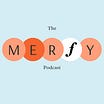Mental Health and Cognitive Benefits of Music- Music Ed Research Report June 2024
Introducing the latest addition to our Choralosophy Community list of contributors. Ellie Johnson is doing to work of summarizing the latest research in Music Ed so you don't have to.
Hello and welcome to the MERFY podcast, Choralosophy Community!
My name is Ellie Johnson, I’m a PhD music education candidate at the University of Nebraska-Lincoln, and I’ve been a choral and general music educator since 2015. The MERFY podcast is where I go to find and summarize Music Education Research For You - because you’re busy and I’m a nerd who likes reading music ed research anyway.
Check back here monthly for your Music Ed Research updates from the MERFY Pod!
I started the MERFY podcast in January with a few goals in mind:
Help connect research to the teachers and students studied and impacted.
Increase accessibility by using a short, audio format with citations included - of course - for those who long for a deeper dive.
Highlight some of the incredible research that music educators and scholars are sharing.
Geek out about music education with you!
In each episode, I summarize one or two pieces of relevant music research available today that may have implications for your classroom. Topics run the gamut of age-groups and applications with the goal of connecting the good work of research with the good work of classroom teaching.

Episodes are short and sweet at just 10-20 minutes. The goal isn't to lecture - it´s to get you in and out with enough information to ignite your own creative and critical thought and to connect you with sources if you’d like to learn more.
Chris has invited me to begin sharing a monthly post with episode/study suggestions that might be of interest to the Choralosophy Community. While not all episodes are specifically focused on choir or singing, I'll always recommend the pieces that I feel contain relevance for the choral classroom today.
As of this first monthly digest, there are 19 MERFY podcast episodes available for you to binge on Spotify, Apple Podcasts, or Amazon Music! Among the favorites are:
Episode 7: Cognitive Skills for Better Independent Practice
In this episode, I cover a 2023 Psychology of Music study from friend and mentor Dr. Robert H. Woody where an amazingly simple intervention has some seriously impactful results. Find out what the component cognitive skills of goal imaging, motor production, and self-monitoring could potentially do for you and your students’ independent practice sessions.
Woody, R. H. (2023). University musicians’ use of component cognitive skills in practice: A self-report study. Psychology of Music, 51(2), 553–564. https://doi.org/10.1177/03057356221095259
Links to listen: Spotify. Apple Podcasts. Amazon Music.
Episode 10: Examining the Undergraduate Credit Crush
Here, I discuss a 2023 article called, “The Push to 120: Reconciling Credit Hours in Undergraduate Music Education” by Andrea Maas, Aaron T. Wacker, and Ashley D. Allen. If you or someone you love was personally victimized by the credit load required for an undergraduate music education degree, you might find this one interesting.
Maas, A., Wacker, A. T., & Allen, A. D. (2023). The Push to 120: Reconciling Credit Hours in Undergraduate Music Education. Journal of Music Teacher Education, 33(1), 86–102. https://doi.org/10.1177/10570837231189822
Links to listen: Spotify. Apple Podcasts. Amazon Music.
Episode 16: Mental Health Benefits of Choir
This episode is all about a 2012 collaboration from Psychology of Music titled, “‘To be heard:’ the social and mental health benefits of choir singing for disadvantaged adults” by Genevieve A. Dingle, Christopher Brander, Julie Ballantyne, and Felicity A. Baker. Participants in this study came from a group called the “Transformers Choir” - a choral ensemble specifically designed for adults experiencing chronic mental illness or social disadvantage. Folks in this group could be experiencing anything from schizophrenia, major depressive disorder, domestic violence, homelessness, or any number of other extreme barriers to independent and fulfilling adult life. Listen to hear the ways singing in the “Transformers Choir” benefitted members far beyond the wings of the stage.

Dingle, G. A., Brander, C., Ballantyne, J., & Baker, F. A. (2013). ‘To be heard’: The social and mental health benefits of choir singing for disadvantaged adults. Psychology of Music, 41(4), 405-421. https://doi-org.libproxy.unl.edu/10.1177/0305735611430081
Links to listen: Spotify. Apple Podcasts. Amazon Music.
And lastly, episodes 18 and 19: Investigating LGBTQ+ Inclusive Choral Practices - Part 1 and 2
In these episodes, I discuss a 2024 article from Update: Applications of Music Education Research examining “LGBTQ+ Inclusivity in U.S. Choral Classrooms” by Heather N. Shouldice and Sydney Timmer, as well as a brief look into the 2023 NAfME Divisive Concept Laws and Music Education Report. Both pieces offer a current perspective of the state of inclusivity in music education and resources for increasing inclusive practices in your classroom.

Shouldice, H. N., & Timmer, S. (2024). LGBTQ+ Inclusivity in U.S. Choral Classrooms. Update: Applications of Research in Music Education. https://doi.org/10.1177/87551233241253829
NAfME Divisive Concept Laws and Music Education Report Land Page.
Links to listen: Spotify. Apple Podcasts. Amazon Music.
I’m looking forward to connecting with you all here and over on The MERFY Pod about all things music ed research. Thanks for having me!
Now go sing, play, or practice something! We’ll talk soon.




